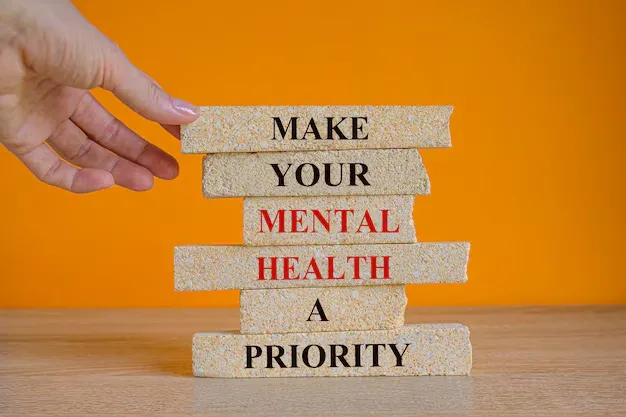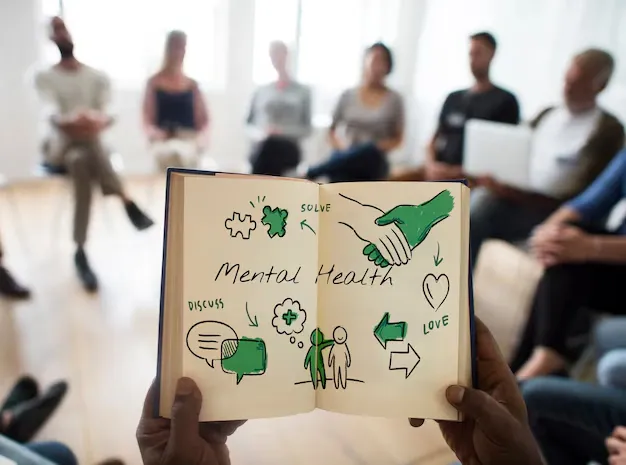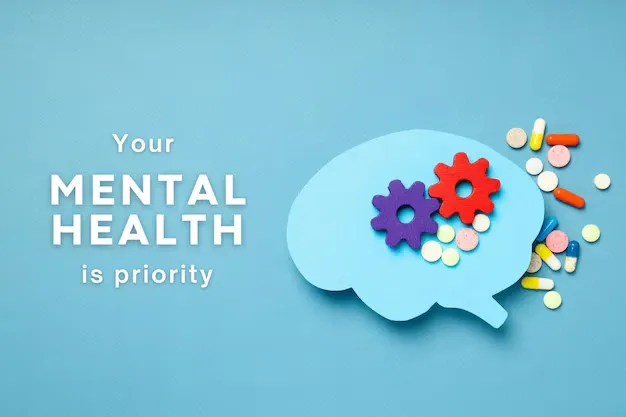Mental Health and Well-Being During Entrance Exam Preparations
Updated: 30 December 2024, 5:36 pm IST
Taking an entrance test is often nothing short of an ordeal for students. Since these determine their future paths, they are of utmost significance.
NCERT recently did a study that found that about 80% of students in classes 9–12 suffer from stress and anxiety about tests and results. This blog will focus on exam stress management, covering all the bases. Find out how to promote mental health throughout the process and ensure student well-being during exams.
Understanding Exam Stress

Students often feel stressed out before tests. Concerns about how well you will do on a test cause nervousness, tension, and worry. Many mental health problems can happen because of the push to do well. Some of these are anxiety illnesses, sadness, and burnout. Being aware of the signs of test anxiety and taking action can help you deal with these problems healthily.
Check Out Our Online Programs
Tips for Reducing Exam Anxiety

Here are some practical tips for reducing exam anxiety for students:
Develop a study plan: Making an organized and realistic study plan can help you finish more quickly and feel less stressed. Set aside time for each subject and ensure there are breaks so you don't get too tired.
Practice mindfulness: Meditation and deep breathing exercises are two methods that can help you stay calm and focused. Regularly practicing awareness can help you focus and feel less stressed.
Seek support: Talking to family, friends, or counselors can help you feel better. They may have helpful tips for coping with exam pressure.
Coping with Exam Pressure

Coping with exam pressure means using techniques that not only help you study for tests but also improve your health as a whole. Here are some methods that work:
Regular exercise: Being active can help you deal with stress. Adding regular exercise to your schedule can improve your mood and make you feel less anxious.
Balanced diet: Eating a healthy diet can give you more energy and help your brain work better. It will help you stay awake and pay attention.
Adequate sleep: Make sure you get at least 7 to 8 hours of sleep every night. Not getting enough sleep can make it hard to focus and remember things.
Healthy Study Habits

To maintain mental health during exams, developing healthy study habits is essential. Here are some habits that work:
Active learning: Use methods for active learning. Some of these are using flashcards, summarising knowledge, or giving it to someone else.
Study groups: Joining a study group can help you stay motivated and see things from different points of view.
Breaks and rewards: Take regular breaks to rest and return to work. To stay inspired, reward yourself after each study session.
Stress Relief Techniques for Students

To help students handle the stress of exams, here are some stress relief techniques for students:
Progressive muscle relaxation: It is a way to ease physical stress by tensing and calming different groups of muscles.
Music: Listening to music has many benefits and is a handy way to relieve stress. You can relax and feel better by listening to music. It can help you focus on positive thoughts and feelings.
Hobbies and Interests: Do things you enjoy, like sports or activities. It can give you a break from learning and make you feel less stressed.
Know More About Our Online Programs
Mental Health Tips for Students

Taking care of your mental health while studying for exams is essential for your general health. These are some mental health tips for students:
Set realistic goals: Make study goals you can reach, and remember to celebrate small wins to keep yourself going.
Avoid delaying: Keeping things for later can make you worry and feel nervous. Break up big study materials into smaller parts. In this way, you can learn hard topics easily and be under less stress.
Self-Care During Exam Preparation

Taking a little self-care during exam prep is essential to maintain balance and avoid stress. Here are some things you can do to take care of yourself:
Me-time: Save time for things you like, like reading, listening to music, or walking.
Positive thoughts: Use positive thoughts to keep an upbeat attitude and improve your self-esteem.
Limit screen time: Spend less time on social media and other online activities to help you concentrate and feel less stressed.
Additional Techniques for Exam Stress Management

There are several other techniques that students can use for exam stress management in addition to the ones already mentioned:
Time management tools: Planners, calendars, and apps can help you track what and when you need to study.
Mock exams: The real test will be less stressful if you take practice tests.
Professional help: If worry and anxiety get too much, getting help from a mental health worker can help you find good ways to deal with them.
Call Us For Any Query:- 1800 102 3434
How to Stay Calm During Exams

On exam day, it's critical to remain composed. Here's how to stay calm during exams:
Get there early: To avoid last-minute panic, arrive at the testing location early.
Breathing exercises: Learn deep breathing exercises to help you relax before and during the test.
Conclusion
A lot of work and worry can go into studying for entrance tests. Using efficient exam stress management strategies, maintaining healthy study habits, and prioritizing mental health are all crucial. Recall that looking after your mental health is as crucial as studying for tests.
Amity offers many services to help students deal with anxiety about exams and maintain good mental health. Amity University Online can also help students gain confidence as they study for exams.
Check Out Our Top Online Degree Programs
Tags : Latest

